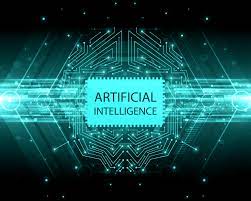The Impact of Artificial Intelligence on Society and Its Ethical Implications

Artificial Intelligence (AI) has become one of the most transformative technologies of the 21st century. Its capabilities in processing vast amounts of data, learning from patterns, and making informed decisions have revolutionised various industries. As AI continues evolving, it significantly influences society, bringing benefits and challenges. This essay explores the impact of AI on different aspects of culture, including the economy, healthcare, education, and the job market. Also, we will talk about the ethical implications of AI’s increasing prominence.
The Positive Impact of Artificial Intelligence on Society
Advancements in Healthcare
AI has revolutionised the healthcare sector, improving diagnosis accuracy and treatment outcomes. Machine learning algorithms can analyse medical data, such as imaging scans and patient records, to detect diseases early and recommend personalised treatment plans. AI-driven robots have also been utilised in surgeries, reducing human errors and enhancing precision. Integrating AI in healthcare is expected to save countless lives and reduce the burden on healthcare systems.
Boosting Economic Growth
AI technologies have the potential to stimulate economic growth by increasing productivity and efficiency across industries. Automation through AI streamlines manufacturing processes, leading to cost reductions and higher output. AI-powered chatbots enhance response times and customer satisfaction in sectors like customer service. The growth of AI-driven businesses and startups fosters job creation and generates new opportunities for innovation.
Enhancing Education
AI can transform the education landscape, enabling personalised learning experiences. Intelligent tutoring systems can adapt to individual student’s learning styles, paces, and strengths, making education more effective and engaging. Moreover, AI-based educational tools can automate administrative tasks for teachers, allowing them to focus more on delivering quality education.
The Challenges Posed by Artificial Intelligence on Society
Job Displacement and the Changing Workforce
While AI creates new job opportunities, it also displaces specific roles that can be automated. Repetitive and routine tasks are particularly susceptible to automation, causing concern for workers in those sectors. As AI continues to evolve, there is a growing need for upskilling and reskilling the workforce to adapt to the changing job market. Policies must be implemented to support displaced workers and help them transition into new roles.
Bias and Fairness Issues
AI systems learn from data; if the training data contains biases, AI algorithms can perpetuate those biases. This can lead to unfair outcomes, such as biased hiring processes, discriminatory loan approvals, or racial profiling. Developers and policymakers must ensure that AI algorithms are unbiased and fair, with transparency in their decision-making process. Addressing bias in AI is essential to prevent reinforcing societal inequalities.
Security and Privacy Concerns
AI’s reliance on vast amounts of data raises concerns about privacy and security. Protecting sensitive information is critical, with the potential for data breaches and misuse. Additionally, using AI in surveillance and facial recognition technologies raises questions about individual privacy rights and the potential for abuse by governments or corporations. Striking a balance between the benefits of AI and protecting individuals’ rights is a complex challenge.
Artificial Intelligence on Society: Ethical Implications of AI
Autonomy and Responsibility
As AI becomes more sophisticated, there is a growing concern about its autonomy and the potential lack of accountability for its actions. AI systems can make decisions and take steps without direct human intervention, raising questions about who should be responsible for AI’s outcomes. Establishing clear guidelines and legal frameworks to attribute responsibility and liability is essential to ensure that AI remains a tool under human control.
Transparency and Explainability
The “black-box” nature of some AI algorithms has raised ethical concerns. When AI systems make decisions that significantly impact individuals’ lives, it is crucial to understand how those decisions are reached. The lack of transparency and explainability can erode trust in AI technologies. Efforts to develop interpretable AI models and mechanisms for explaining AI decisions are necessary to ensure accountability and maintain public confidence.
Human-AI Collaboration: Artificial Intelligence on Society
The rise of AI also raises questions about the future of human labour and creativity. As AI systems become more capable, the distinction between human and machine contributions might blur. Society must address the ethical implications of using AI to enhance human capabilities while preserving the essence of human ingenuity and creativity.
Conclusion to Artificial Intelligence on Society
Artificial Intelligence on Society; Artificial Intelligence has made remarkable strides in shaping society’s various facets, from healthcare to education and the economy. The positive impacts of AI are undeniable, as it has the potential to save lives, improve efficiency, and enhance learning experiences. However, we must recognise the challenges posed by AI, such as job displacement, bias, security, and privacy concerns. The ethical implications of AI demand careful consideration as we navigate the increasing autonomy of AI systems and ensure transparency, fairness, and accountability.
To harness AI’s full potential for the benefit of society, collaboration between technologists, policymakers, ethicists, and the public is vital. Striking a balance between innovation and ethical responsibility will be the key to harnessing the transformative power of AI while safeguarding our values and principles in an AI-driven world.
References to Artificial Intelligence on Society
Ambagtsheer, R.C., Shafiabady, N., Dent, E., Seiboth, C. and Beilby, J. (2020). The application of artificial intelligence (AI) techniques to identify frailty within a residential aged care administrative data set. International Journal of Medical Informatics, 136, p.104094. doihttps://doi.org/10.1016/j.ijmedinf.2020.104094.
Olson, S. (2017). Responding to the Threat of Sea Level Rise. [online] doi https://doi.org/10.17226/24847.
Urban, T. (2017). The Artificial Intelligence Revolution: Part 1 – Wait But Why. [online] Wait But Why. Available at: https://waitbutwhy.com/2015/01/artificial-intelligence-revolution-1.html.
Artificial Intelligence on Society





